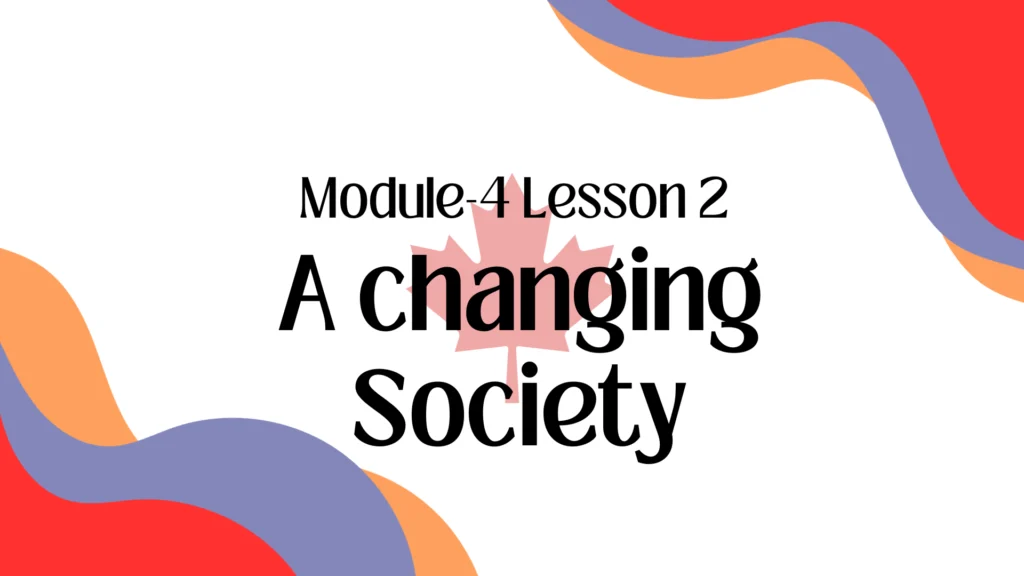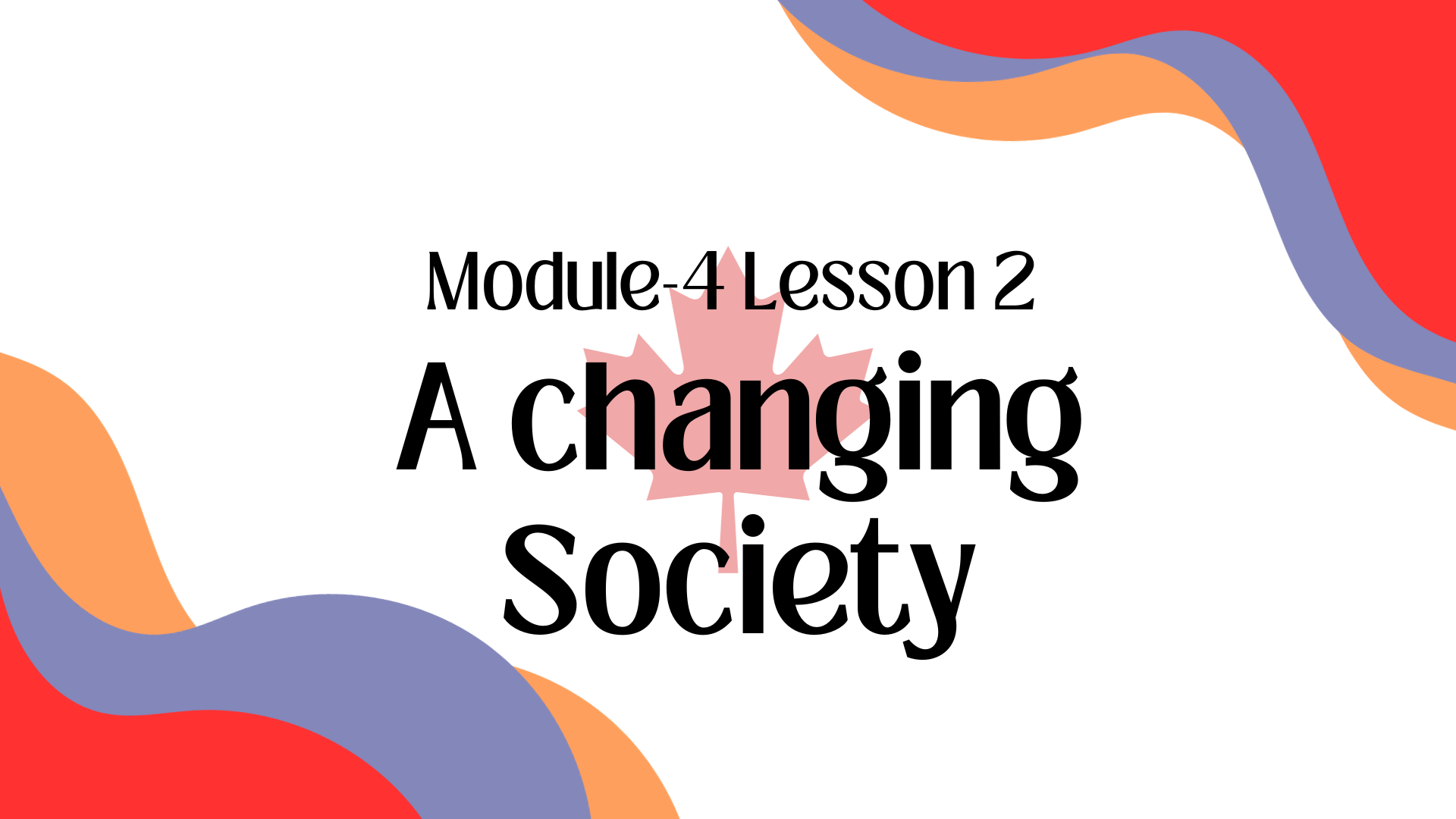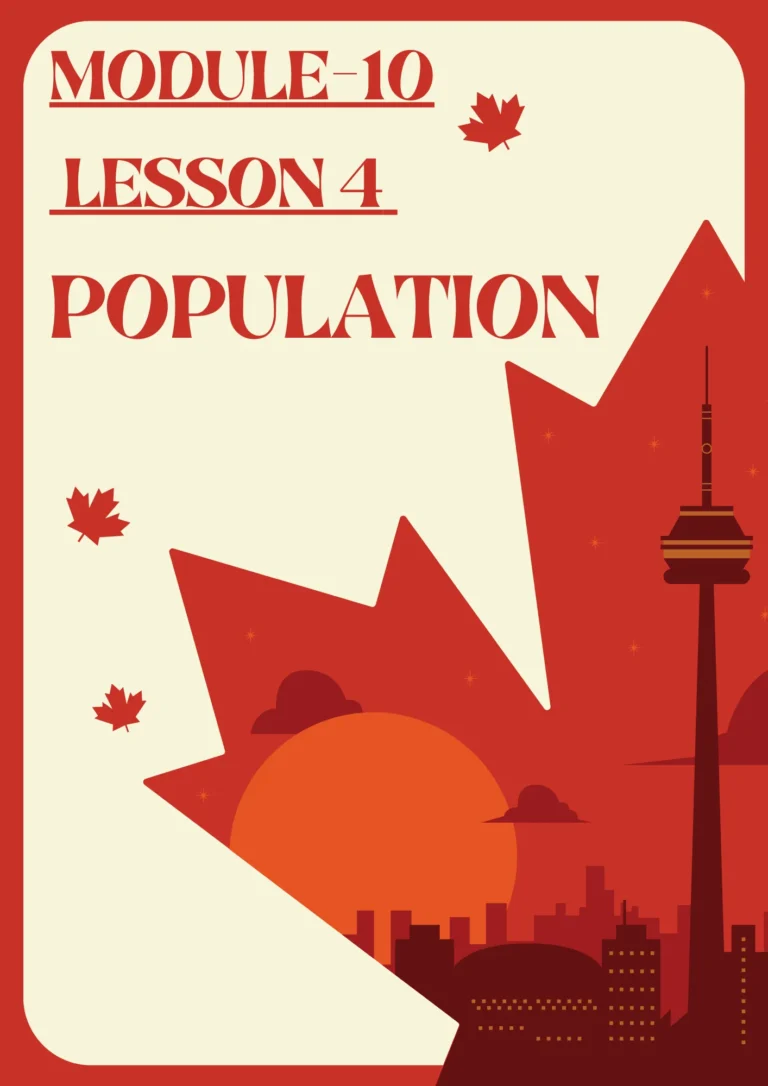Module-4 Lesson 2: A changing Society, Canada
Canada is known as a country that values diversity, inclusion, and resilience. However, it’s undergoing some major changes that are transforming its social fabric. Canada’s culture is changing rapidly, from demographic changes to cultural shifts and evolving values. The exploration examines the many factors that are contributing to Canada’s transformation and how these changes will affect the future of the country.
Demographic Shifts: Diversity as a Hallmark of Canadian Identity
The demographic changes in Canada are one of the major aspects that have shaped the country. Immigration has been a major factor in the reshaping of Canada’s population. This is reflected in a tapestry rich in cultural diversity. Toronto, Vancouver and Montreal are vibrant multicultural centers where people from all over the world add to Canada’s rich mosaic of identity. Canadian society has a growing cultural and ethnic diversity.
Aging Population: The Challenges and Opportunities of an Elderly Society
Canada is no exception. The longer life expectancy and the lower birth rate contribute to the demographic shift, whereby a greater proportion of people are entering their senior years. This presents challenges in healthcare, social services and pension systems. However, there are also opportunities to redefine notions about aging and intergenerational cooperation.
Urbanization and Changing Lifestyles: The Rise of Metropolitan Centers
Urbanization is on the rise in Canada, as a growing percentage of Canadians live in urban areas. The shift in population is not just a reflection of economic benefits but also of lifestyle changes, changing preferences and the appeal of different cultural experiences. The cities are becoming social, cultural, and economic hubs that influence the way Canadians work, live and interact.
Technological Advancements: Shaping Social Interactions and Work Environments
Another key factor driving societal changes in Canada is the rapid pace of technological advancements. Digital technology has changed the way Canadians work, communicate and get information. Social media platforms, remote work opportunities, and innovations in various industries have contributed to a more interconnected and technologically-driven society. These advancements, however, also bring with them challenges related to digital inequality and privacy. They can also have an impact on the traditional employment structure.
Changing Family Structures: Embracing Diversity and Inclusivity
The traditional family structure in Canada is changing, reflecting the broader shift towards inclusivity and accepting diverse family models. The shift in family structure not only challenges traditional conceptions but also demonstrates Canada’s commitment to recognizing and respecting different expressions of family.
Canada’s Environmental Consciousness: A Growing Embrace of Sustainability
Canadians adopt more eco-conscious behaviors and attitudes as awareness about environmental issues increases. Sustainable development is becoming an important factor in individual and social decision-making. It influences everything, from corporate practices to consumer decisions. Initiatives focusing on waste reduction, renewable energy and conservation are all part of a larger collective effort to reduce the environmental impact caused by human activity.
Cultural Dynamics: Indigenous Resurgence and Multiculturalism
Reclaiming Indigenous cultures and identities is an important aspect of Canada’s evolving societal landscape. Acknowledging historical injustices and working towards reconciliation have led to a resurgence of Indigenous cultures, languages and practices. Multiculturalism is also a fundamental element of Canadian identity, as it fosters an environment in which people from different cultural backgrounds are able to celebrate and maintain their heritage.
Social Activism: Advocating for Equity, Inclusion, and Social Justice
In the 21st century, social activism has exploded in Canada. Individuals and groups are now advocating social justice, equity and inclusion. The momentum of movements addressing issues like racial discrimination, gender inequality and climate change has grown. Canadians have become more vocal about their desire for systemic change that will promote a just and equal society.
Educational Paradigm: Adapting to a Changing Workforce
Canada’s educational system adapts to the changing needs of its workforce. STEM fields (science, technologies, engineering and mathematics) are emphasized to meet the needs of emerging industries. There is also a growing awareness of the need to foster critical thinking, adaptability, and creativity in order to prepare people for an ever-changing job market.
Mental Health Awareness: Breaking the Stigma
In Canada, a notable change in attitudes towards mental health has begun. The stigma associated with mental illness has decreased as a result of increased awareness. The shift in public discourse, as well as efforts to improve the mental health support system, reflects this change.

Conclusion: Navigating a Path Forward in a Transformative Era
The changing face of Canadian society is a reflection of a country in transition, adapting itself to the challenges of the 21st century. The changing demographics of the population, advances in technology, changes in cultural values, and changes in society’s dynamics all contribute to an increasingly interconnected and diverse society. Canada’s capacity to foster inclusivity and sustainability while addressing social issues will determine the country’s path as it navigates through this transformational era. Canadian society’s adaptability and resilience are a testament to the future of a country that is characterized by equity, innovation and shared commitment.






